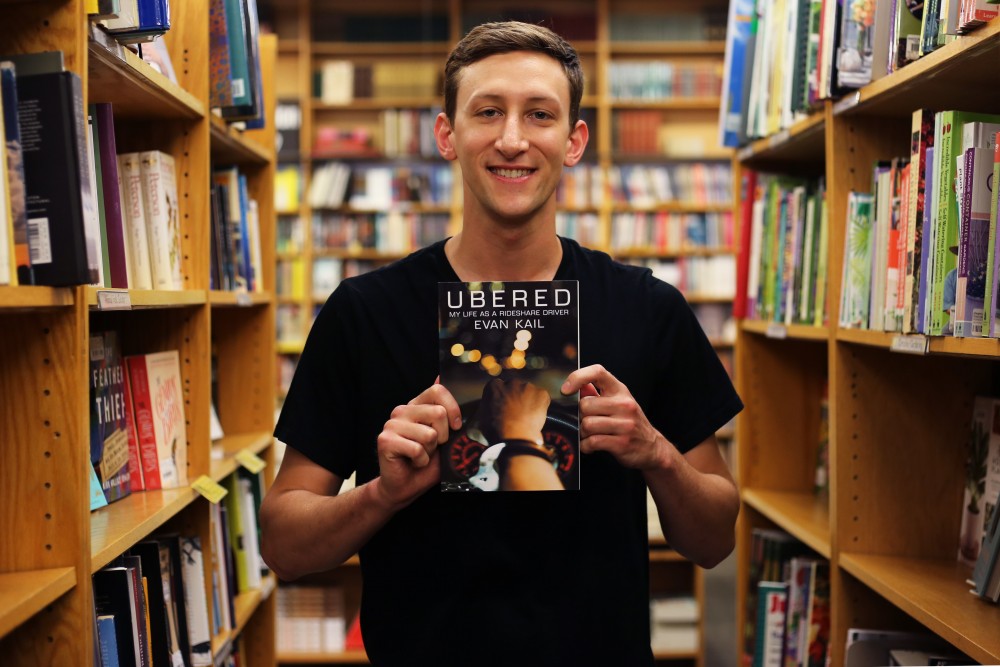While trying to jumpstart a screenwriting career after graduation from the University of Minnesota, Evan Kail turned to driving for rideshare services Uber and Lyft as a quick, reliable job. Kail eventually channeled miles of driving into his memoir “Ubered: My Life as a Rideshare Driver,” which was released last fall.
Over the years Kail witnessed street fights, drove a few celebrities and saw more Friday nights in Dinkytown than most people should.
A&E chatted with Kail about his travels across Minneapolis and St. Paul, his advice for Uber and Lyft riders and what life is really like behind the wheel.
What made you turn to rideshare?
It’s all about my life ambition, which has been writing. Rideshare came to town, so I started thinking that I could do this job where I could actually make a decent amount of money [ … ] and I could write in my spare time between rides.
Many of your stories took place in Dinkytown — could you tell me some of your favorites?
I call [college kids] “clown car riders;” they will literally turn your car into a rolling joke. Like, can we fit eight people in here?
What are some standout stories from your travels in general?
I drove the drummer from the band Blitzen Trapper. I’ve driven Harlem Globetrotters. One time, this guy basically started a street fight and then ran up to my car to retreat. I had to get out of there because people didn’t know I was an Uber driver. I pull over a block later and tell this guy, “You have to get out, because I’m not going to be an accomplice in a street fight.”
What did you learn about the Minneapolis-St. Paul area from driving around?
I’ve been here my whole life. I grew up in Edina, but I didn’t explore a lot of the facets. I drove 140,000 miles around the metro area, so I know every street, every alley. This is a top-15 city in the country, but it’s got a small-town feel to it. I recognize drivers and cars all the time. You learn patterns. You learn behavioral cues.
What do you think most rideshare users don’t know about the services?
We don’t know where you’re going. I would take being able to know where you’re going over most other [application] changes. I might end up down the block, or I might end up in Chicago.
You have plans for a sequel to “Ubered” — what is “Ubered 2” going to look like?
More wild. More crazy. I’m trying to make this so grandiose and in-your-face to Uber, like, “How do you guys keep going?”
Do you exaggerate your stories at all?
No. I wish. I have not lied or exaggerated with any of these stories.
What kind of feedback have you gotten on “Ubered?”
Mixed reviews. The positives are so glowing and validate everything I’ve done with writing … and the bad ones are really bad. I kind of get amusement out of it.
Do you have any advice for rideshare users? How do you become a great rider?
Keep your hands to yourself. Don’t eat food in the car. Don’t smoke. Don’t hookup. Don’t ask [the driver] how long they’ve been doing it or about the craziest things they’ve seen [ … ] I’ve answered this question 15 times today, and I’m only human.
I’m sure you never expected to have these experiences — what have they meant to you?
[Driving for Uber] was life-changing. Truly. It taught me about humanity and social interaction. I was pretty awkward beforehand human interaction-wise. I’ve learned a lot [ … ] but it’s just not a good way to make money.
Editor’s note: This interview has been edited for length and clarity








